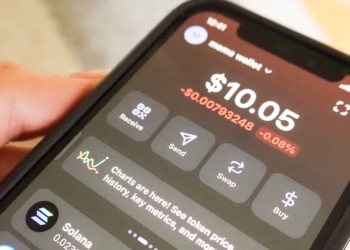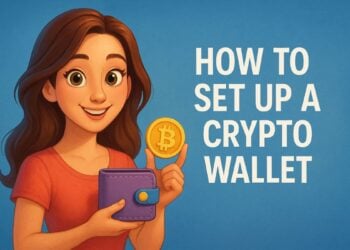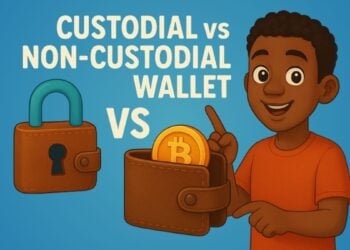-
Buying crypto without submitting your ID?
Yes, it’s possible — and more common than you think.Table of Contents
ToggleRelated posts
While most centralized exchanges require KYC (Know Your Customer) verification — like uploading a passport or driver’s license — many users prefer to stay anonymous when buying Bitcoin, Ethereum, or other assets.
Some do it to protect their privacy.
Others live in countries with strict regulations.
And for many, it’s simply a matter of principle: not wanting to hand over sensitive data just to access financial tools.In 2025, there are now several ways to buy crypto without KYC, including:
- Peer-to-peer (P2P) platforms
- Decentralized exchanges (DEXs)
- Certain crypto ATMs
- And yes — even a few No-KYC exchanges
This guide will walk you through all the safest options — and help you decide if the no-KYC route is right for you.
New to crypto? You might prefer: How to Buy Your First Crypto (Beginner’s Guide)
Why Some Users Prefer No-KYC Options
Let’s be clear: KYC isn’t inherently bad. It exists to prevent money laundering, fraud, and other financial crimes.
But in the crypto world — which was born from a desire for decentralization and freedom — not everyone agrees that sharing your ID is necessary or wise.Many users choose no-KYC methods because they:
- Want to protect their privacy
- Live in countries with strict or unclear crypto regulations
- Don’t trust centralized exchanges to safeguard personal data
- Prefer the cypherpunk ethos of full anonymity and self-sovereignty
Others are simply tired of the hoops involved in verification: uploading documents, waiting hours (or days) for approval, and dealing with platforms that suspend accounts without warning.
Pro Tip: Choosing no-KYC doesn’t mean illegal activity — it just means you’re opting out of traditional data collection. But it also means you take full responsibility for your funds and actions.
That’s why no-KYC crypto buying is growing in popularity — especially as more users learn about DEXs, P2P markets, and No-KYC exchanges that allow them to skip the paperwork altogether.
No-KYC Methods to Buy Crypto
There are more ways to buy crypto without KYC than most people realize — but each comes with its own trade-offs.
Let’s break down the most common options and how they work in practice
- Peer-to-Peer (P2P) Platforms
These platforms let users buy and sell crypto directly with each other — no intermediaries, no ID. You simply pick an offer, send the payment (usually via bank transfer, cash, or e-wallet), and receive the crypto to your wallet.
Well-known platforms include Binance P2P, Hodl Hodl, and Bisq. Some even offer escrow to protect buyers.
Pro Tip: Always choose sellers with strong ratings, long histories, and verified feedback. Scammers do exist in P2P — don’t rush.
- Crypto ATMs
In some cities, crypto ATMs allow you to insert cash and receive Bitcoin or other coins directly to your wallet — no questions asked. That said, most now require a phone number, and some countries mandate ID verification above certain limits.
Still, they remain a fast, semi-private way to buy small amounts of crypto — especially if you’re using a burner phone and a non-custodial wallet.
- DEX + Onramp Combos
You can also combine a non-custodial wallet (like MetaMask or Trust Wallet) with a fiat onramp such as MoonPay, Transak, or Ramp Network. Some of these services let you buy small amounts of crypto with low or no verification, depending on region and limits.
Once the crypto lands in your wallet, you’re free to use DEXs like Uniswap, PancakeSwap, or 1inch to swap for other tokens — all without KYC.
- Prepaid Gift Cards or Vouchers
Some services and marketplaces let you trade gift cards (like Amazon, Steam, etc.) for crypto, usually via P2P platforms or Telegram groups. While not as seamless, it’s a method that requires no banking or ID — just trust and caution.
Each of these methods bypasses the traditional KYC process — but they also demand that you understand wallets, transactions, and basic security principles.
Pros and Cons of Buying Crypto Without KYC
Choosing to skip KYC when buying crypto gives you more freedom — but also more responsibility.
Here’s a breakdown of the main advantages and disadvantages of going no-KYC
Pros and Cons Table
✅ Pros ⚠️ Cons Privacy No personal data or ID required No legal protection if something goes wrong Speed No delays waiting for KYC approval Some methods are riskier (P2P, ATMs) Global Access Available to users in restricted countries Not all platforms are reputable or easy to use Control You keep your keys and custody No customer support or recovery options Flexibility More payment methods (cash, vouchers, P2P) Purchase limits may apply without ID Pro Tip: If you value privacy, always pair your no-KYC strategy with a secure wallet and strong operational hygiene (VPN, clean browser, and secure seed storage).
How to Stay Safe When Buying Anonymously
Buying crypto without KYC puts you in full control — but it also removes the safety nets. There’s no support ticket to open, no bank to call, and no “forgot password” button if something goes wrong.
That’s why security becomes your responsibility — and it starts from the moment you decide to go no-KYC.
The first step is using a non-custodial wallet. Whether it’s MetaMask, Trust Wallet, or a hardware wallet like Ledger, you must own your private keys — and store your seed phrase in at least two secure, offline places. Losing that phrase = losing your funds, forever.
If you’re buying via P2P, always:
- Check the seller’s profile, ratings, and trade history
- Avoid deals that are “too good to be true”
- Use platforms with built-in escrow when possible
- Never finalize a payment before confirming receipt
When using crypto ATMs, be aware of hidden fees and potential surveillance (some machines have cameras or phone verification). If privacy is your goal, use cash and a wallet that isn’t tied to your identity.
Pro Tip: Always use a VPN when interacting with no-KYC services. It adds a layer of protection against IP tracking, especially when trading on P2P or browsing DEX aggregators.
And most importantly: test with small amounts first. Whether you’re swapping on a DEX or sending crypto to a new wallet, always start small to verify everything works as expected.
No KYC means no one can stop you — but also no one can save you.
FAQs on How to Buy Crypto Without KYC
Is it legal to buy crypto without KYC?
In most countries, yes — it’s not illegal to buy or hold crypto without verifying your identity.
However, regulated platforms are required to implement KYC. Using no-KYC methods like DEXs or P2P platforms is typically allowed, but you should always check your local laws.Can I use Uniswap or PancakeSwap without an ID?
Yes. DEXs like Uniswap, PancakeSwap, and 1inch don’t require KYC because you’re connecting directly with your wallet.
You’ll need crypto in that wallet already to trade, and you’ll pay a network (gas) fee — but no personal data is asked.Are there limits to how much I can buy without KYC?
Yes, many platforms apply limits for unverified users. Fiat onramps may allow $500–$1,000 per month, Crypto ATMs often limit large purchases unless ID is scanned, and P2P trades are unrestricted, but higher amounts increase risk
What’s the safest way to buy crypto without KYC?
The safest approach combines: a trusted P2P platform with escrow, a non-custodial wallet, and a good dose of operational caution (VPN, small test amounts, known sellers).
Where can I find trusted No-KYC exchanges?
There are a handful of crypto exchanges that don’t require KYC up to a certain limit — especially for crypto-only trading (no fiat).
See the full list: 10 Best No-KYC Crypto Exchanges in 2025
Final Thoughts: No-KYC Doesn’t Mean No Rules
Buying crypto without KYC isn’t just possible — it’s becoming easier and more accessible in 2025. Whether you’re protecting your privacy, avoiding unnecessary bureaucracy, or simply exploring your options, there are safe, effective ways to do it.
Just remember: with freedom comes responsibility.
You’re not relying on a platform anymore — you’re relying on yourself. That means understanding wallets, verifying everything, and taking security seriously.
The bottom line: You don’t need to give up your ID to buy crypto — but you do need to know what you’re doing.
Where to Go Next:









